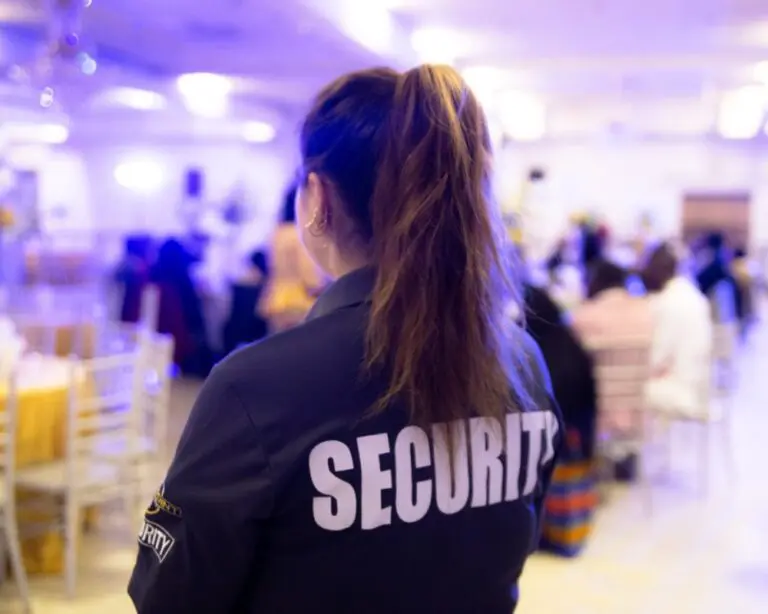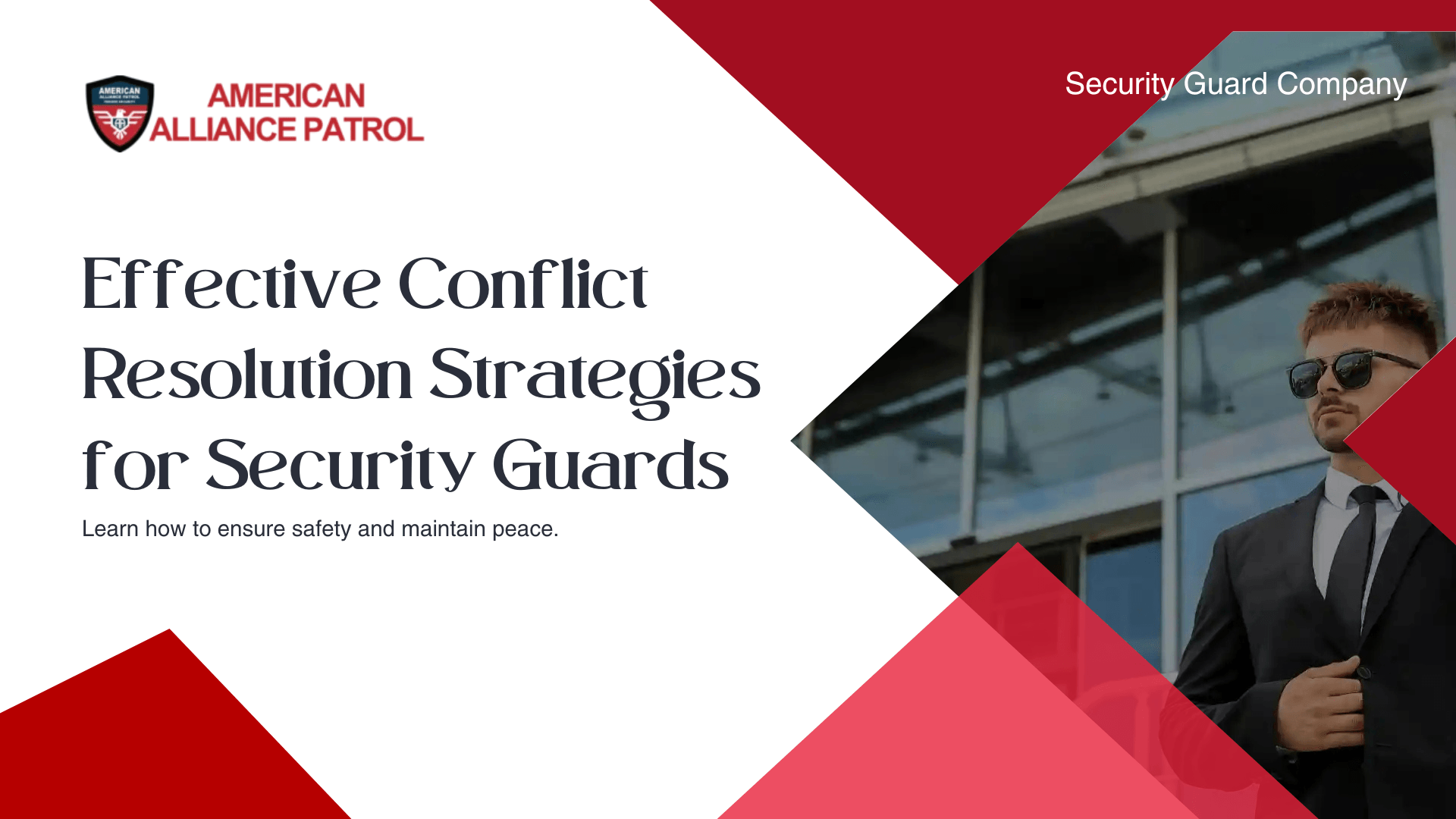Home » 2024 Blogs » Effective Conflict Resolution Strategies for Security Guards

Dealing with Difficult Situations: Conflict Resolution Strategies for Security Guards
Effective Conflict Resolution Strategies for Security Guards
Security guards play an essential role in keeping places safe and secure. However, their job can sometimes involve difficult situations that require quick thinking and effective communication. In this blog post, we will discuss some practical conflict resolution strategies that security guards can use when dealing with these tough moments.
Understanding Conflict Situations
Before we discuss the strategies, let’s define “difficult situations.” These are moments when emotions run high, and people may not act rationally. They can happen anywhere—at a shopping mall, a concert, or even in a quiet neighborhood. Security guards are often the first responders to these conflicts.
Why Conflict Happens
Conflicts can arise for various reasons:
- Miscommunication: Sometimes, people misunderstand each other. For example, one person might think another is acting aggressively when they are just frustrated.
- Stress: People may be under a lot of pressure. When stressed, they might react strongly to small issues.
- Differences in Opinion: Everyone has their beliefs and opinions. When these clash, conflicts can arise.
Strategies for Conflict Resolution
When security guards face difficult situations, it’s crucial to have effective conflict resolution strategies at their disposal. Let’s explore these strategies in detail.
Stay Calm and Composed
One of the first things security guards should do when faced with a difficult situation is to stay calm. If guards lose their cool, the situation can escalate quickly. Here are a few tips:
- Take Deep Breaths: Breathing deeply can help calm nerves. It allows guards to think clearly.
- Maintain a Steady Voice: Speaking calmly can reassure others involved. It shows that the guard is in control of the situation.
Listen Actively
Listening is a critical skill for security guards. When they listen actively, it shows that they care about what others have to say. Here’s how to do it:
- Make Eye Contact: Looking at the person speaking indicates that you are paying attention.
- Repeat Key Points: Repeat what the other person has said to show understanding. This confirms that you are listening.
Use Empathy
Understanding how others feel can make a huge difference. Security guards should use empathy to connect with people in conflict. Here’s how:
- Acknowledge Their Feelings: Phrases like, “I can see you are upset,” can help calm emotions.
- Put Yourself in Their Shoes: Try to understand the situation from their perspective. This approach helps in finding a solution.
Set Clear Boundaries
When dealing with difficult situations, security guards need to set boundaries. This ensures everyone understands what is acceptable behavior. Here’s how to communicate boundaries:
- Use Clear Language: Instead of vague statements, be direct. For example, “Please step back” is clearer than “Can you give me some space?”
- Remain Firm but Fair: Guards should maintain a balance. They can be firm without being aggressive.
Offer Solutions
Sometimes, conflicts arise because people want their issues resolved. Security guards can help by offering solutions. Here’s how:
- Brainstorm Together: Ask the involved parties for their input. This encourages teamwork and makes them feel heard.
- Suggest Practical Solutions: Provide options that work for everyone. For instance, “How about we take a five-minute break?” can diffuse tension.
Know When to Call for Help
Not all situations can be handled alone. Security guards should know when it’s time to call for backup. Here are some signs:
- Escalating Violence: If the situation is getting out of control, it’s better to call for help.
- Involvement of Multiple Parties: When several people are involved, it can become chaotic. Calling for additional support ensures safety.
Importance of Training
Training plays a significant role in preparing security guards for difficult situations. Regular training sessions can help guards develop conflict-resolution skills. These sessions can include:
- Role-Playing Scenarios: Practicing different conflict scenarios can improve decision-making skills.
- Communication Skills Workshops: Learning effective communication techniques can help guards handle difficult situations better.
Conclusion
Dealing with difficult situations is part of a security guard’s job. By using conflict resolution strategies like staying calm, listening actively, using empathy, setting boundaries, offering solutions, and knowing when to call for help, guards can effectively manage conflicts.
Moreover, regular training is essential to keep these skills sharp. Remember, the goal is to ensure safety while maintaining peace. By being prepared, security guards can face challenges head-on, making their workplaces safer for everyone.
FAQs
- What are conflict resolution strategies for security guards?
Conflict resolution strategies include staying calm, listening actively, using empathy, setting boundaries, offering solutions, and knowing when to call for help.
- Why is training important for security guards?
Training helps security guards develop the skills needed to handle difficult situations effectively. It prepares them to respond quickly and appropriately.
- How can security guards manage stress during conflicts?
Security guards can manage stress by taking deep breaths, maintaining a calm voice, and practicing self-care techniques regularly.
- What should a security guard do if a situation escalates?
If a situation escalates, a security guard should call for backup and ensure their safety and the safety of others involved.
- How can empathy help in conflict resolution?
Empathy allows security guards to connect with individuals in conflict, making them feel heard and understood. This can often de-escalate tense situations.

